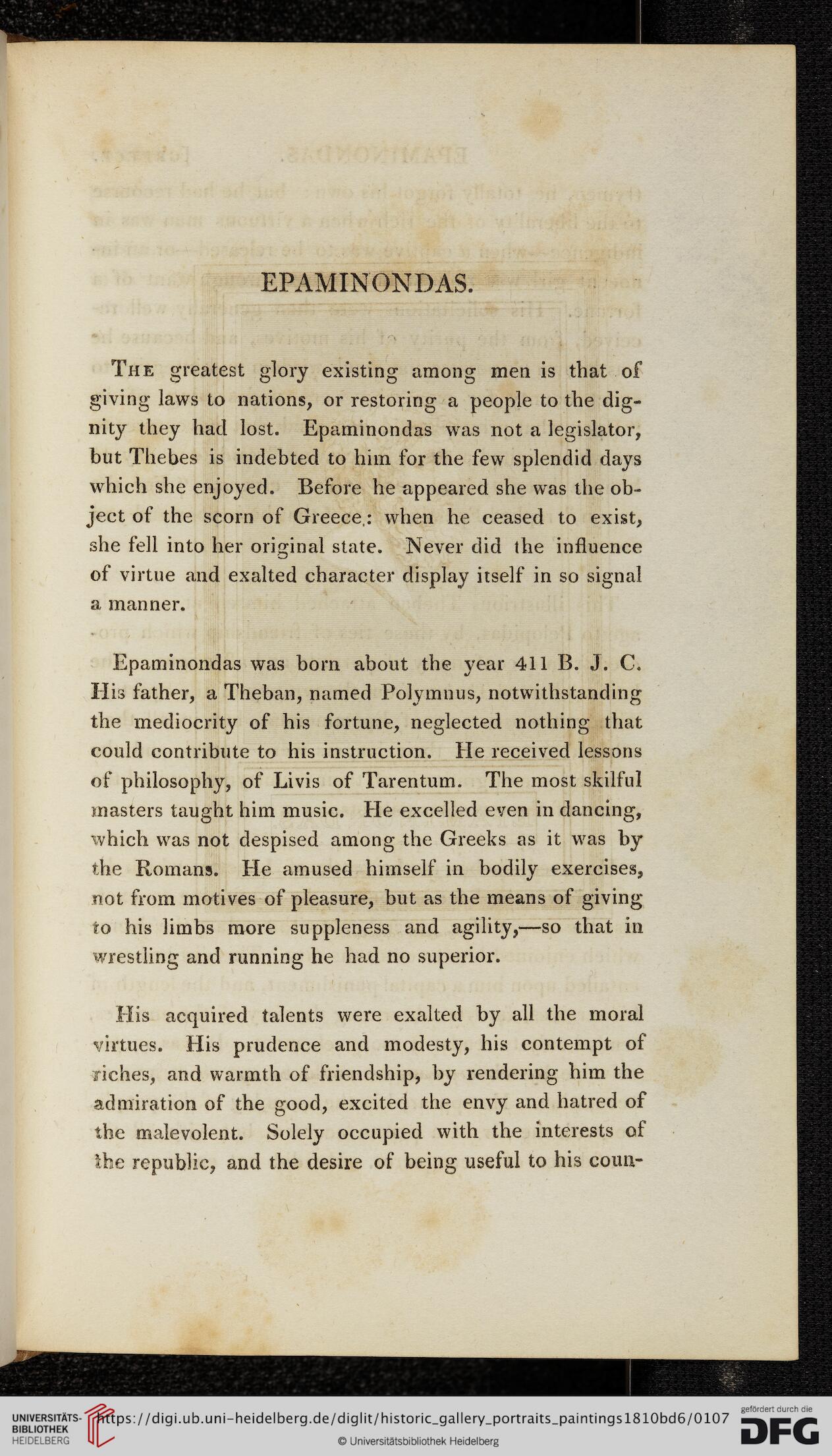EPAMINONDAS.
The greatest glory existing among men is that of
giving laws to nations, or restoring a people to the dig-
nity they had lost. Epaminondas was not a legislator,
but Thebes is indebted to him for the few splendid days
which she enjoyed. Before he appeared she was the ob-
ject of the scorn of Greece.: when he ceased to exist,
she fell into her original state. Never did the influence
of virtue and exalted character display itself in so signal
a manner.
Epaminondas was born about the year 411 B. J. C.
His father, a Theban, named Polymnus, notwithstanding
the mediocrity of his fortune, neglected nothing that
could contribute to his instruction. He received lessons
of philosophy, of Livis of Tarentum. The most skilful
masters taught him music. He excelled even in dancing,
which was not despised among the Greeks as it was by
the Romans. He amused himself in bodily exercises,
not from motives of pleasure, but as the means of giving
to his limbs more suppleness and agility,—so that in
wrestling and running he had no superior.
His acquired talents were exalted by all the moral
virtues. His prudence and modesty, his contempt of
riches, and warmth of friendship, by rendering him the
admiration of the good, excited the envy and hatred of
the malevolent. Solely occupied with the interests of
the republic, and the desire of being useful to his coun-
The greatest glory existing among men is that of
giving laws to nations, or restoring a people to the dig-
nity they had lost. Epaminondas was not a legislator,
but Thebes is indebted to him for the few splendid days
which she enjoyed. Before he appeared she was the ob-
ject of the scorn of Greece.: when he ceased to exist,
she fell into her original state. Never did the influence
of virtue and exalted character display itself in so signal
a manner.
Epaminondas was born about the year 411 B. J. C.
His father, a Theban, named Polymnus, notwithstanding
the mediocrity of his fortune, neglected nothing that
could contribute to his instruction. He received lessons
of philosophy, of Livis of Tarentum. The most skilful
masters taught him music. He excelled even in dancing,
which was not despised among the Greeks as it was by
the Romans. He amused himself in bodily exercises,
not from motives of pleasure, but as the means of giving
to his limbs more suppleness and agility,—so that in
wrestling and running he had no superior.
His acquired talents were exalted by all the moral
virtues. His prudence and modesty, his contempt of
riches, and warmth of friendship, by rendering him the
admiration of the good, excited the envy and hatred of
the malevolent. Solely occupied with the interests of
the republic, and the desire of being useful to his coun-




